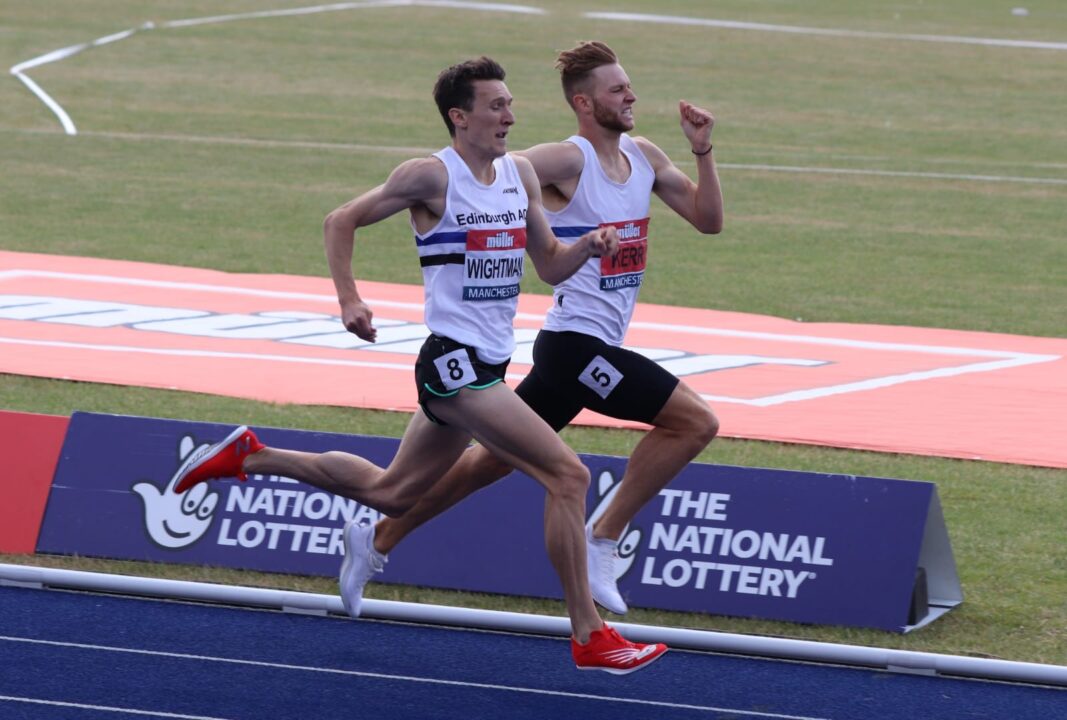This summer, for the second time in a row, Edinburgh AC topped the World Championships podium in the men’s 1500m. Guest writer Danny Convery gives us his opinion on why this happened, as an EAC club member,
In the 2022 1500m world championships, Jake Wightman took the lead with 200m to go and never looked back. He defeated Jakob Ingebrigtsen for the first time, marking one of the most surprising moments of the championships.
Jake’s fellow EAC club member, Josh Kerr, secured fifth place in the same race. Jake later revisited our club to share his experience. The moment was cherished, and his insights were eagerly absorbed, as we initially believed he might be our club’s sole world champion. However, time proved us wrong.
Just over a year later, Josh Kerr took the lead in the 1500m world championship final, this time with 150m remaining. He continued to surge ahead and spectacularly clinched the world title. This achievement prompted contemplation among millions: How did Edinburgh produce two distinct world champions?
The answer, as it turns out, is not a mere coincidence.
The Answer
The source of this knowledge arises from being a member of the Edinburgh Athletics Club, training under their former coach, extensive conversations with Josh Kerr, Jake Wightman, Josh Kerr’s father, and Eric Fisher, their former coach, as well as thorough research leading to an informed opinion.
These days, we humorously ponder sending Jakob Ingebrigtsen a GB vest’s back portion, as that’s the only part he ever gets to see.
The Coach
What makes this story intriguing is how Josh Kerr exhibited exceptional growth from a young age. His immense talent was evident from the outset, suggesting he was destined for the top. In contrast, Jake Wightman started at a slower pace during his youth—talented but not a national champion like Josh. Nevertheless, both individuals ascended to the pinnacle of their sport.
Remarkably, Eric Fisher’s coaching philosophy remained consistent for these diverse talents: rigorous training, consistent easy runs, and an emphasis on enjoyment. Eric’s training sessions always held a purpose; they weren’t mind-numbingly regimented drills devoid of fun.
The focus on enjoyment and longevity is the cornerstone of the club’s success. Winning the next month’s race was secondary; Eric prioritized the athletes’ long-term development.
The Volunteers
Every successful club relies on dedicated volunteers who show up in all weather conditions.
In EAC’s case, club president Yvonne Jones has contributed for over two decades, never missing a session. Eric himself, at 77, also attends twice weekly without fail. The invaluable contributions of these volunteers often go unnoticed. Without their commitment and that of many others in the club, Josh and Jake’s success might never have materialized.
The Running Culture in Scotland
The triumphs of Scottish athletes extend far beyond our club. Notable names like Neil Gourley, Andy Butchart, Laura Muir, Eilish McColgan, Josh Kerr, and Jake Wightman exemplify Scotland’s prowess in athletics.
Edinburgh AC is not the sole producer of world-class athletes, it’s the entire country; thanks to the presence of role models and fierce competition.
Inspirations like Steve Cram influenced Josh and Jake, who now inspire the next generation. The impact of these role models reflects in the remarkable performances of current Scottish teenagers.
This year, a 14-year-old ran a 3:53 1500m, an unprecedented achievement. He’s not alone; four or five 14-year-olds broke the 4:10 barrier this year, a significant milestone.
Running in Scotland has become mainstream, akin to football or rugby, influencing both Josh and Jake and the youth of today. This has fuelled a desire for innovation in training and recovery methods [and some examples can be seen on Danny’s own website here].
Photo: James Rhodes
Recruitment
The club employs numerous methods to recruit new athletes. Running is a widespread activity in Scotland, with schoolchildren encouraged to participate in cross country.
Numerous parkruns, cross country leagues, and local track races further nurture the sport. Most individuals dabble in running, and those who develop a passion pursue it further, ensuring that talent is identified and cultivated. The presence of numerous leagues in track, cross country, and road running, and the willingness of our stars like Muir and Wightman still regularly attending these, amplifies these opportunities.
In Summary
The success of our club cannot be attributed to a single factor.
Rather, it is the harmonious convergence of various elements. Foremost among these is the running culture in Scotland, reminiscent of the role models in Kenya.
The accomplishments of Edinburgh AC are genuinely unprecedented and stand as a testament to the athletes, coaches, volunteers, and supportive parents who navigate the challenges and triumphs alongside their children.
